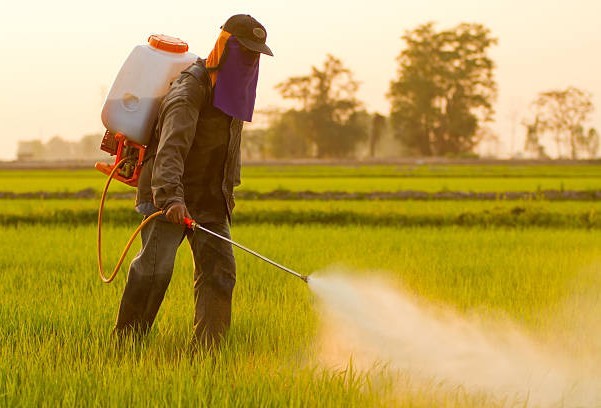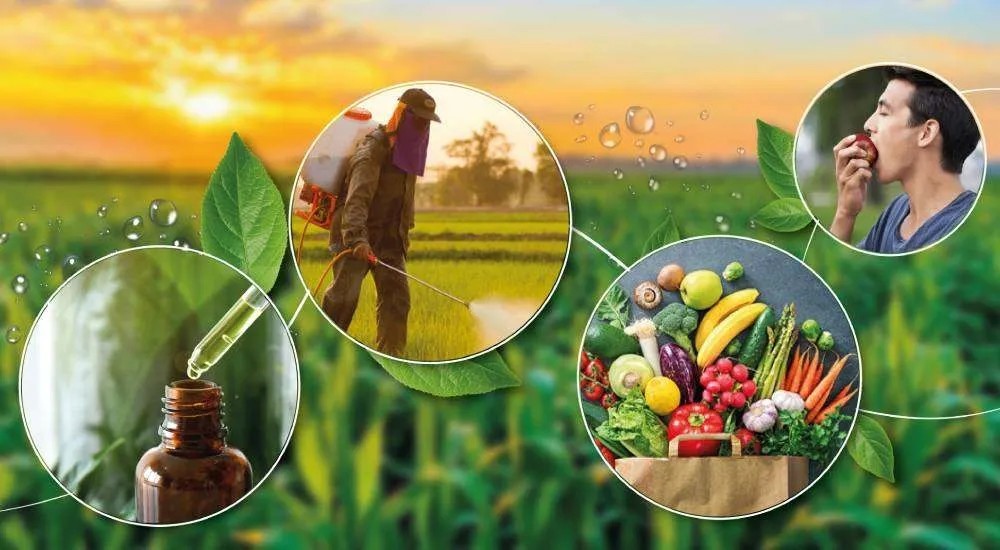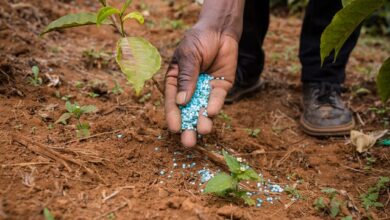Global Wake-Up Call: Pesticide Bans Push Toward Sustainable Farming

March 15, 2025 – A South Asian nation. May 14, 2025 – A leading Western economy , on these two dates there were two pivotal announcements, continents apart , are now setting the stage for the future of agriculture, public health and environmental policy.
First, the Ministry of National Food Security and Research in a South Asian country imposed a sweeping ban on 12 toxic pesticides, including Methyl Bromide (MB), a chemical long known for its devastating effects on human health and the environment. Then, just weeks later, the Health Secretary of a major developed nation, Robert F. Kennedy Jr., advocated for federal health advisories on several pesticides, signaling a potential shift in agricultural policy in one of the world’s largest economies.
Together , these two decisions will entirely influence the international market; the unregulated use of harmful chemical based pesticides is no longer acceptable .

Impact Chain of Pesticide Use — Spraying, Food Contamination, and Health Risks
1.1 A Global Shift : National Policies Spark International Momentum for Safer Agriculture:
The timing of these decisions first from the developing agriculture economy, then from a major industrialization nation signals it has to be to global alignment on the need to confront pesticide related risks .What was a concern raised mainly by environmental groups has now entered mainstream public policy discussion across continents .
A wave of international action is underway. Numerous countries across both developed and developing regions, are taking active steps to reform pesticide regulations ranging from outright pesticide bans and stricter residue limits to enhances monitoring and public advisors. While precautionary pesticide bans continue to define regulatory frameworks in environmentally progressive areas, many emerging countries are also updating their standard in line with global trade and safety expectations.
The fact that this issue has moved from national to international forums shows that toxic pesticide use is no longer just a local concern, it’s a cross border, global challenge gaining urgent political and environmental traction.
1.2 Securing Fields and Food: A South Asian Nation Has Eliminated Toxic Pesticides from Major Crops :
A developing South Asian country took a decisive step by banning 12 hazardous pesticides, including Methyl Bromide , commonly used on wheat ,rice and vegetables . This move aligns with scientific evidence and international environmental agreements .
Methyl Bromides was mainly banned due to its:
- Role in Ozone layer depletion (Montreal Protocol)
- Associated health risk: neurological ,respiratory and skin disorders
- Environmental damage: soil degradation, biodiversity loss and water contamination
The government also imposed strict phytosanitary requirements on imports to prevent overuse and double fumigation at ports To support safer alternatives, a Technical Committee of Scientists was also established under the Ministry of National Food Security and Research to oversee the transition and promote sustainable practices.
1.3 Ensuring Success: Actions Needed Beyond the Pesticides Bans:
While the ban marks a significant regulatory milestone , effective implementations will rely on the following strategies:
Enforcement: Some farmers still use restricted or unregistered pesticide ,often due to lack of awareness or availability of alternatives , Singer enforcement measures and public awareness campaigns are crucial.
Training for Plant Health Professional : Although plant doctors are trained to avoid recommending unapproved chemicals , there remains small but concerning misuse rate. Expanded training programs can help close this gap and ensure better pesticide management.
Access to safer Alternatives and Protective Gear: Many farmers who continue to rely still on hazardous based pesticides , there is a need to provide subsidies for farming with biopesticides that can significantly ensure public health as well as environmental safety.
“Banning harmful chemicals is a critical first step, but providing farmers with the knowledge, tools, and access to alternatives is what ensures long-term success.”
1.4 Conclusion on Pesticide Bans: A NEW Era for Sustainable Agriculture
The movement to eliminate toxic, chemical-based pesticides is no longer an isolated effort. With Pakistan leading the charge and global powers following suit, we are entering a new era of agricultural reform. One where sustainable, safe farming practices are not merely a goal, but an essential part of protecting our planet and future generations.

Biopesticides as a Safer Alternative to Chemical Pesticides
As the world takes significant steps toward pesticide regulation, it is clear: the future of agriculture lies in adopting practices that protect health, promote sustainability, and ensure the long-term viability of our environment.
About the Author:
- Sidra Tul Muntaha is associated with NED University of Engineering and Technology and is passionate about promoting sustainability within the economic system.
- Email ID: [email protected]
- Contact us : +92 3412530367





